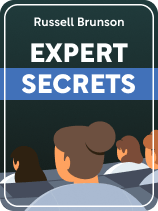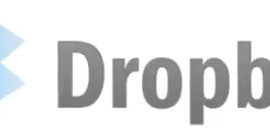
Why is marketing easier when you understand basic human needs? How much do you know about the ability and desire of potential customers to spend money on your product?
Russell Brunson made his name selling online marketing tools specializing in sales funnels. He contends that to successfully launch a business, you must start by solidly identifying your market. Until you know whom you’re aiming at, you can’t effectively come up with details for your offer.
Keep reading to get Brunson’s advice on how to choose a target market for your product.
How to Choose a Target Market
Identify your core market by figuring out which of three basic human desires your product appeals to—wealth, health, or relationships. Brunson argues that every purchase is an effort to enhance one of those areas of the buyer’s life. Therefore, figure out which of these your idea appeals to.
(Shortform note: Brunson’s advice on how to choose a target market is aimed mostly at companies targeting individuals as end-users and customers. So, his recommendations on how to examine that market may not be as relevant to business-to-business companies. Instead, companies aiming to provide goods or services to other companies might be better off examining other factors—in Competitive Strategy, Michael Porter writes that the primary factor a business should consider is whether a market is controlled by a limited number of suppliers (such as chip-manufacturing industries that rely on just a few rare-earth miners). For businesses like this, the end-user isn’t as much of a concern.)
He further argues that, within these categories, the most important thing people seek is status. He writes that, when people are looking to improve any aspect of their lives, the question they’re asking themselves is whether a purchase will increase their status in the eyes of others.
| Other Theories of Core Human Needs The three basic human desires Brunson mentions are a simplification of a more widely accepted set of human wants—Maslow’s hierarchy of needs. This ranks five needs that humans seek, starting with those that are most important to survival and continuing to those that people seek once their basic survival needs are met: • Physiological needs (food, water, shelter, clothing, sex) • Safety needs (employment, health, property) • Love (friendship, intimacy, family) • Esteem (status, freedom, respect) • Self-actualization (the desire to live up to your potential) Brunson’s three desires essentially summarize these five: Wealth and health desires relate to both physiological and safety needs, while relationship desires align with the need for love. His emphasis on status corresponds to Maslow’s category of esteem. Brunson doesn’t mention anything that specifically corresponds to Maslow’s need to self-actualize, but we might infer that this need touches on each of the desires Brunson mentions if we see each desire as a way a person can live up to their potential. Brunson’s advice to appeal to just one of these categories aligns with that of other marketers—in Positioning, Al Ries and Jack Trout write that the simpler your message, the better, because the human mind can only process a few ideas at once and is programmed to filter out any information that might exceed its working capacity. |
Brunson also advises that, when determining your core market, you should consider whether people within that market are passionate about that aspect of their lives. Look for signs that would indicate passionate fans. Does this market have active communities using blogs, online forums, and so on? Do they use unique terms that people outside the market won’t know (like nicknames or shortened versions of terms)? Do they participate in events, such as conferences or workshops? Does the market have already established experts and celebrities, indicating a thriving subculture?
Further, consider whether people within this market have money and are willing to spend it. If you want your company to be financially successful, Brunson cautions that you shouldn’t target people who either don’t have money or aren’t interested in spending it to improve that aspect of their lives.
| Another View on Identifying Your Market In 12 Months to $1 Million, Ryan Moran agrees that the first step in developing a product is identifying your market, and he suggests that you start by considering communities you belong to or are familiar with. For example, you might be involved in outdoor sports groups, which can give you insight into their concerns, trends, unique vocabulary, and so on, as well as whether they have discretionary money and are willing to spend it. Another advantage of becoming familiar with these aspects of a group is that you can leverage that knowledge later, during your sales presentation, to establish a connection and encourage your audience to identify with you. In Public Speaking for Success, Dale Carnegie writes that one way to do this is to use in-group terms, like making a physics joke when addressing a group of scientists, much like Brunson recommends. |
Exercise: Choose a Market
Brunson advises that when choosing a market, you narrow your focus to find a niche category that doesn’t have a strong established leader. In this exercise, think through how you might do that.
- Start with your overall core market: Are you looking to answer a need for wealth, health, or relationships?
- Within that market, what submarket will you serve? What customers will you be looking to help? What’s the overall market description for your product? (For example, are you hoping to engage retailers within the wealth core market?)
- Now consider the niche you’ll serve—what smaller group of that submarket will you target? (For example, what kind of retailers are you interested in—clothing stores? Bakeries? Bike shops?)
- Drill down further to identify what small category you might serve within that niche. For example, maybe you’ll target avid mountain bikers who need portable supplies.

———End of Preview———
Like what you just read? Read the rest of the world's best book summary and analysis of Russell Brunson's "Expert Secrets" at Shortform.
Here's what you'll find in our full Expert Secrets summary:
- A how-to guide for creating excitement for your business ideas
- How to tap into your audience’s emotions to create loyal customers
- Tips for identifying and targeting your core market






